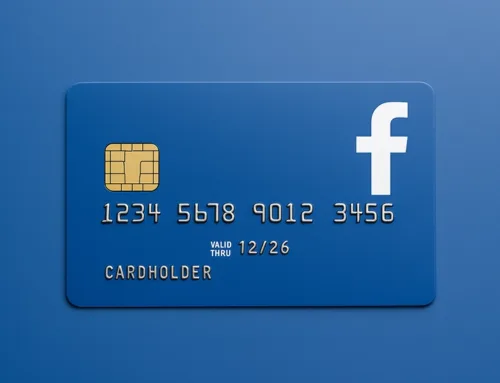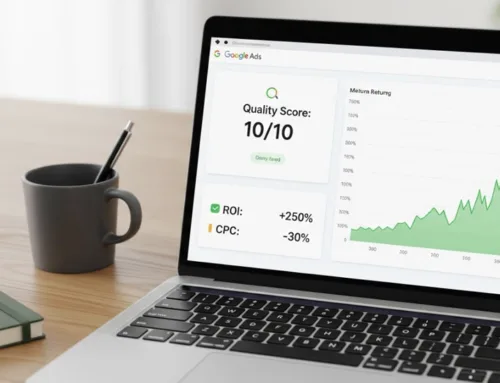Today, launching a Google Ads campaign is an essential lever for generating qualified traffic, increasing sales or developing brand awareness. There are a multitude of reasons to get started with Google Ads. But one question always comes up: what budget is needed to achieve concrete results? While there’s no set minimum amount, it would be illusory to believe that a few dozen euros will suffice in every case. This article will help you understand how to estimate a realistic budget for your Google Ads campaigns and avoid spending “in a vacuum”.
Can you run a Google Ads campaign on a small budget?
Yes, Google Ads is available for as little as a few euros a day, which means you can test the platform without big financial risks. In theory, you can set a daily budget of 2, 5 or 10 euros. This may be appropriate for highly targeted local campaigns or one-off tests.
Why does too little cost more?
Investing “just to try it out” without reaching a minimum break-even point is one of the most common mistakes. Here’s why it can be counterproductive:
- Compromised learning phase: Google Ads needs an initial period (usually 7 to 14 days) to learn how to deliver your ads to the right people. If your budget is too low, the learning phase will never be completed.
- Insufficient data to optimize: without enough clicks and conversions, you won’t have any reliable feedback to improve your ads or targeting.
- Frustration and abandonment: many advertisers stop their campaigns too early for lack of results, when they simply haven’t invested enough to “let the machine learn”.
- A poor Quality Score increases costs and reduces ROI. See our article on this subject: Google Ads Quality Score: the complete guide to reducing your costs and maximizing your ROI.
What budget do you need for your business sector?
The cost of a Google Ads campaign depends largely on your sector, the level of competition on your keywords and your objective (click, conversion, sale). Here are some indicative ranges for monthly budgets, excluding agency fees:
- E-commerce: €500 to €10,000
- Health & well-being: €1,000 to €5,000
- Real estate: €1,500 to €7,000
- Professional services (lawyers, B2B consultants, etc.): €2,000 to €8,000
Why are budgets so different?
Because cost-per-click (CPC) and customer acquisition cost (CAC) can vary enormously. In highly competitive sectors, a click can cost between 3 and 20 euros. So you’ll need a substantial budget to generate a sufficient volume of conversions.
How can you define your budget effectively?
Setting a budget should never be arbitrary. Here’s a simple method for adjusting it to your goals:
- Calculate your monthly target: number of sales, leads or contacts to be obtained.
- Estimate your average conversion rate: for example, if 5% of visitors fill in a form.
- Deduct the number of clicks required: 100 leads with 5% conversion = 2,000 clicks.
- Multiply by the average CPC: 2,000 clicks at €1.50 = €3,000 advertising budget.
Useful tools for refining this estimate :
- Google Keyword Planner: to find out the CPC per keyword.
- Google Ads Performance Planner: simulate budget scenarios based on your objectives.
The risks of an underestimated budget
Too small a budget doesn’t just make you invisible. It can undermine your entire strategy. Here are the main risks:
- Systematically lose bids: your competitors invest more, your ads are simply not shown.
- Few or no leads: especially in high CAC sectors, where a lead can cost €50 or more.
- Insufficient creative quality: you do everything yourself (visuals, text), to the detriment of advertising impact.
- Ineffective targeting: without A/B testing and segmentation, you’re targeting the wrong audience.
- Premature drop-out: your campaign doesn’t have time to reach its optimum phase.
Should I use a Google Ads agency?
Managing your campaigns on your own may seem economical, but in reality, using a specialized Google Partner-certified agency can often deliver better results at the same cost. An agency will :
- Build a solid campaign structure.
- Identify the most profitable keywords.
- Define precise targeting for your Google Ads
- Continuously optimize your ads, bids and landing page.
- Recommended strategy: capitalize on 3 to 6 months
Google Ads isn’t an instant miracle tool. To obtain reliable results, it is often preferable to set up a budget for several months, for example :
- 1,000 to €3,000 per month for 3 to 6 months, depending on your sector.
- Allows the algorithm to optimize your performance.
- Smoothing out costs over the medium term, with a visible improvement in results.
This timeframe also enables us to identify what works, exclude what doesn’t, and optimize on an ongoing basis.
Conclusion: don’t spend in a vacuum
Google Ads can be extremely profitable, but only if you allocate a budget in line with your sector and objectives. Launching a campaign for €100 a month in a competitive sector is often a guarantee of invisibility.
Here are the keys to avoiding wasting your investment:
- Set measurable objectives.
- Study the competition and the average cost of clicks.
- Calculate your target CAC to define a realistic budget.
- Consider expert assistance if your budget exceeds €1,000/month.
- Allow at least 3 months for testing and optimization.
A good budget is not one that costs little, but one that allows you to be visible, relevant and effective.




